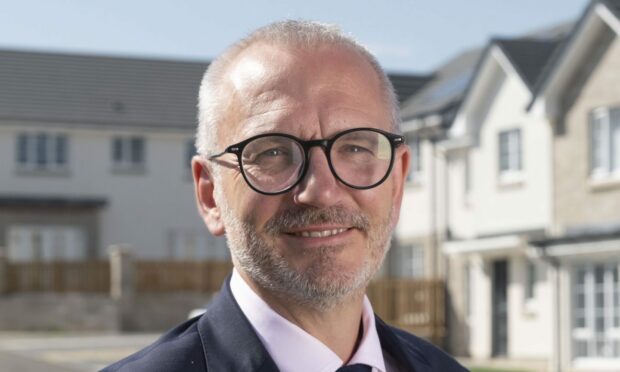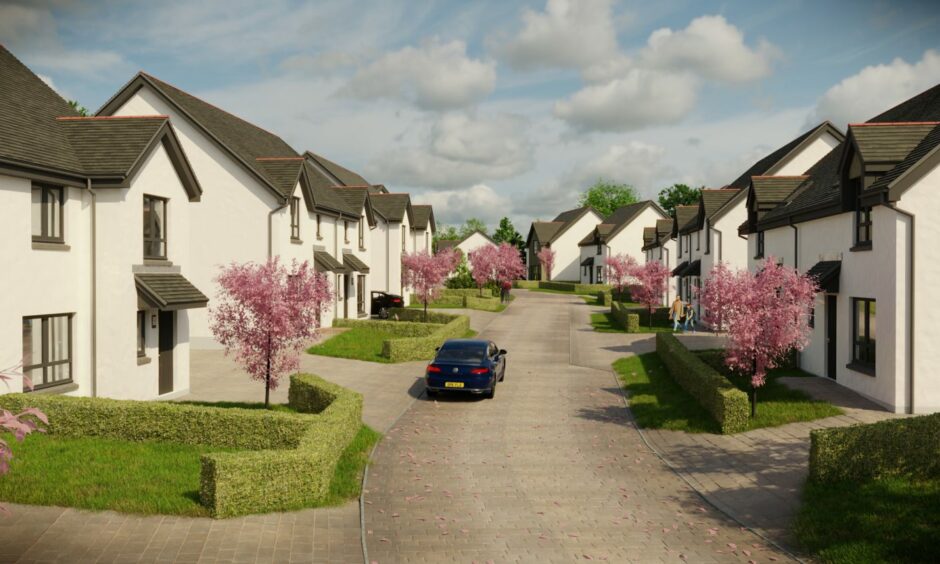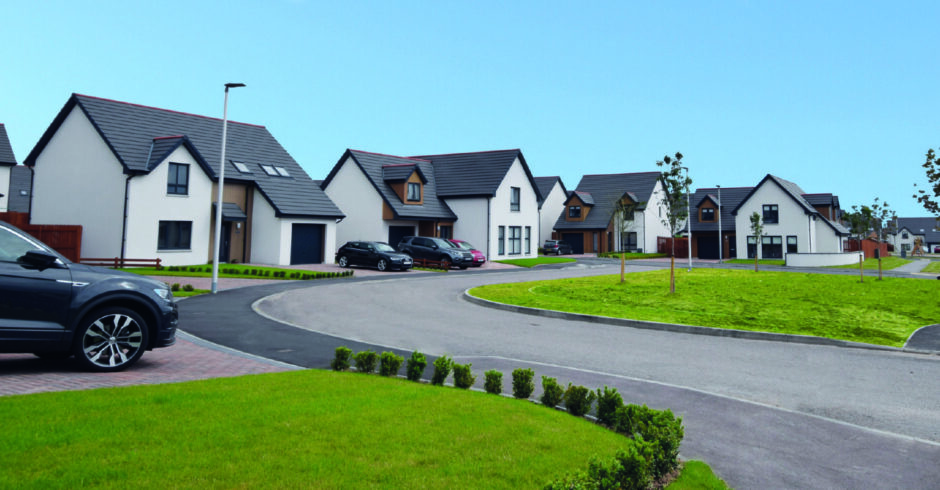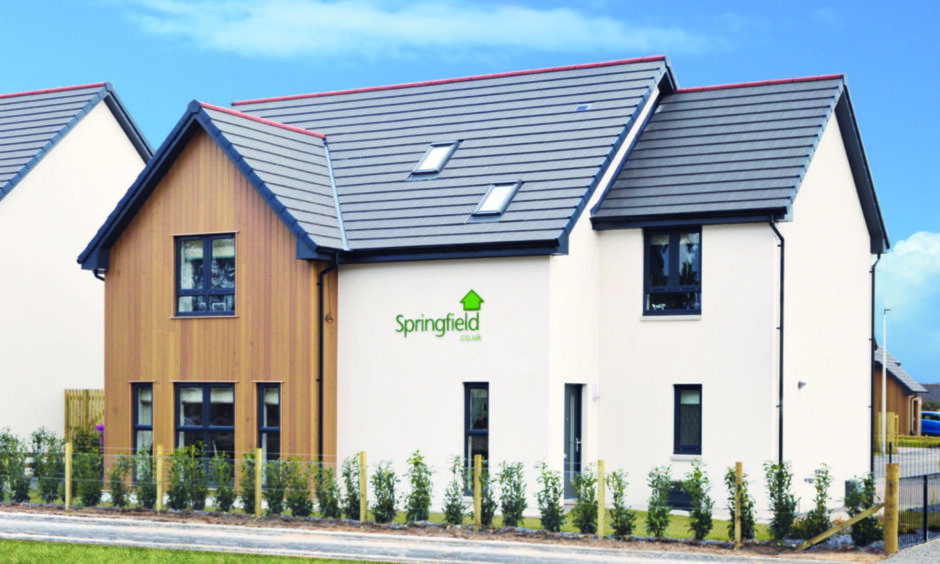The significant contribution housebuilders make to the local and national economy is often overlooked.
They create jobs and help to combat climate change by increasing the energy efficiency of our built environment.
They have a positive impact on well-being, health and even education attainment.
The industry must keep delivering homes, even through periods of uncertainty, because there is no bigger impact on local economies than doing nothing.
Sustaining housebuilding is crucial for the Scottish economy and for the local economies that Springfield supports regionally across the country.”
Scotland’s housing market has performed well in recent years – we have seen this reflected in our own business, having marked 1,200 completions and revenue growth across the group this year.
While the market is now adjusting, arguably to more “normal” levels, following a prolonged period of particularly low-interest rates, we continue to see demand.
As one of Scotland’s leading housebuilders, we are in tune with market opportunities and challenges, and believe a defining factor of the past few years is the undersupply of housing in Scotland.
We should be building at least 25,000 homes every year just to keep up with existing demand.
But since 2007, the peak of the last economic cycle, we have failed to come close to that number. People continue to cry out for quality housing, and it is this demand, together with an acute lack of supply, that means we continue to have confidence in market fundamentals.
Of course, we will all see changes within new market cycles. High specification as standard, value for money and energy efficiency is more important than ever, and something we continue to place a lot of emphasis on when developing communities across the Springfield Group.
Buyers focused on quality
In a slower market, customers seek out quality – in both products and services – and brands like ours are well-placed to benefit.
For many would-be-buyers, the changes in mortgage rates have not dampened their appetite to buy.
Of course, customers are more cautious – they are doing their sums and assessing affordability more carefully, but their aspirations remain the same.
A key difference between the shock of 2008 and the impact of the mini-Budget is that banks are in a much better place. While the rates and products available may have changed, loan-to-value ratios remain healthy for first-time buyers and banks are attracted to new-build homes because of their energy efficiency credentials.
In Scotland, employment is strong and income-to-mortgage ratios are lower than elsewhere in the UK.
Energy-efficient homes a bigger priority amid cost-of-living crisis
As the cost-of-living crisis accelerates, the attraction of a home that retains its warmth is essential, and Springfield homes are four times as efficient as a Victorian equivalent.
Research confirms that buyers of new-build homes will save around £2,600 a year in energy bills, even with the cap in place, and as a result, our customers are benefitting from the emergence of “green” mortgages.
While the rates and products available may have changed, loan to value ratios remain healthy for first-time buyers and banks are attracted to new-build homes because of their energy efficiency credentials.”
Sustaining housebuilding is crucial for the Scottish economy and for the local economies that Springfield supports regionally across the country.
Housebuilding in Scotland supports 3.5 jobs for every home built. Good housing also attracts good employers regionally and discourages people from migrating to cities in search of a better living.
For these reasons we are always surprised when new housing is opposed.
Springfield has a responsibility to address the lack of understanding about all the good things that housing brings – particularly in our role regionally, given we can see the impact on rural villages when things slow down.
While we remain confident the demand for private homes will continue, we recognise the importance of building across tenures.
There is no better time for the Scottish Government to do more to keep things moving.
We have expressed disappointment in the unintended consequences of the temporary rent freeze on the supply of energy-efficient, purpose-built homes for families looking to live in the private rented sector (PRS).
Our Bertha Park village project in Perth was recently named development of the year at the Scottish Home Awards 2022. We have showcased there how PRS can be delivered, partnering with Sigma to deliver Scotland’s first family build-to-rent homes.
‘Uncertain’ rental market
Unfortunately, uncertainty created by the rent freeze means Scotland’s PRS sector is more difficult to invest in than England’s and, as a direct result, investment for 300 homes was lost.
Affordable housing is part of a sustainable mix and Springfield’s business focusing on this part of the market has grown exponentially since we launched it 20 years ago.
Congratulations to Bertha Park, Perth by Springfield Properties PLC for winning the Housing Development of the Year (Large, Private Sale) category of the @homeawards!#scottishhomeawards #proudsponsors
Photo Credit: Gerardo Jaconelli for the Scottish Property Awards pic.twitter.com/NcW3ZSLFtU— NHBC (@NHBC) July 1, 2022
The government has a target of 110,000 new affordable homes in Scotland over the next decade.
This reinforces our commitment to the sector and we eagerly await an inflationary review of the level of funding available per affordable home built. In the current climate, with affordable housing projects having to be shelved, this review is critical.
Housing demand will continue and we are confident the market will soon stabilise.
But regardless of market circumstances, we must collectively address the continued lobbying against new housing. This is a bigger and longer-term risk to housebuilding and to the communities across the country that need investment.
Innes Smith is chief executive of Elgin-based Springfield Properties.




Conversation